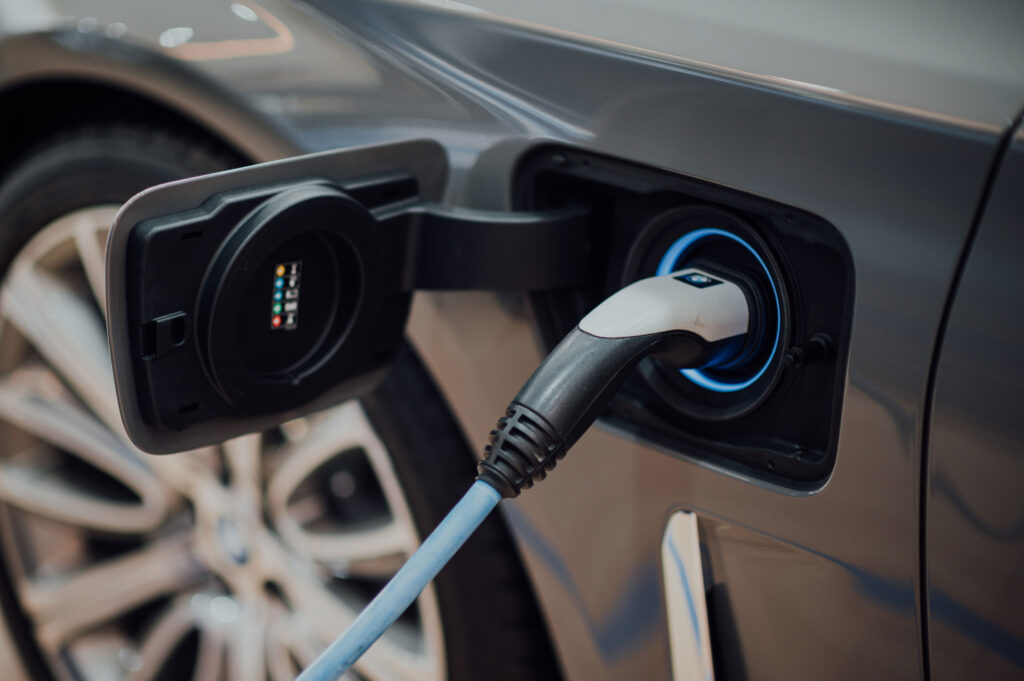Volcanoes are erupting in The Philippines, but on-fire Australia received some welcome rain. The Iran war cries have been called off and The Donald’s military powers are about to be hamstrung by the Senate. Meanwhile, his impeachment trial is starting, and we’re all on Twitter for a front-row seat.
What Could Go Right? How to save yourself from cynicism
A strategy for healthy engagement with current events. Plus, all your questions about electric cars, answered.
This is our weekly newsletter, What Could Go Right? Sign up here to receive it in your inbox every Thursday at 6am ET. You can read past issues here.
How to save yourself from cynicism
“My elder kid is in high school,” one Member of The Progress Network (TPN), Charles Kenny, tweeted yesterday. His kid’s teacher asked the class whether humanity as a whole is good or bad. “They were the only one to raise their hand to say ‘good,’” Kenny wrote. The rest of the class said “bad.”
This opinion about humanity’s overwhelming badness isn’t confined to high school classrooms. We’re not here to convince you one way or the other—maybe when the final history on humanity’s run gets written, the outcome will be “bad” after all. But there is a lot more evidence for the “good” than is commonly recognized.
Like? Well, most recently, there have been studies showing that cooperation among strangers in the United States has increased for the past 60 years; that children who missed out on early child-mother bonding can still develop critical social skills from relationships with trusted neighbors; and that we underestimate how great it feels to be on both the giving and receiving ends of random acts of kindness. (My favorite tidbit from the last link: if the impulse to do something kind arises, pull a Nike and just do it!)
In many cases, though, the kind of mindset that raises its hand for “humans are bad” isn’t formed from our everyday interactions with people but from the barrage of the 24-hour news cycle. It won’t surprise TPN readers that yet another study has come out that says doomscrolling is literally bad for your health. The study’s lead author, an associate professor at Texas Tech University, told The Guardian that overattention to the news “could bring about a ‘constant state of high alert’” that makes “the world seem like a ‘dark and dangerous place.’”
Research shows that teaching your kids that the world is dark and dangerous is not helpful to them, TPN Member Arthur Brooks writes in The Atlantic. And if the Texas Tech study is any indication, it’s not helpful to us adults, either.
Better, then, not to get caught in the doomscrolling trap. While I support the usual anti-doomscrolling advice to take a break from the news or meditate or go on a walk with friends, from my own experience running TPN for the last two years and more than a decade in the media world, those suggestions are more like Band-Aids than actual fixes for figuring out how to healthily engage with current events. I’ve found that a change in mindset in how we see the news is actually more sustainable in the long run.
A family member asked me this week, for example, if I was worried about what’s going on at the Zaporizhzhia nuclear plant, where fighting between Russia and Ukraine has left the site vulnerable to disaster. So says a report from The International Atomic Energy Agency (IAEA), which naturally resulted in a spate of news coverage. What’s easy to miss, though, is that what led to the wall-to-wall coverage is actually part of the situation’s potential solution. The IAEA is the watchdog of the United Nations (UN). Now, with this new report from the IAEA’s visit to the plant, the UN is getting to work on convincing Russia and Ukraine to establish a demilitarized zone around it. There’s no guarantee of success, of course. But the UN did succeed on a compromise between the two sides once already, when Russia agreed to allow grain exports to restart in the Black Sea.
If you can train yourself to see not only the problem but also an emerging solution, you’ll notice that emerging solutions are a lot more common than they seem, and that there are a lot of good people out there trying to undo the damage the bad ones cause. Efforts are underway to transform journalism to showcase solutions better. But as readers, we too can start identifying them within coverage of even the most serious events.
After more than two years of teaching myself how to do this, I can’t say that it’s obvious or easy. It’s not. But it’s the strategy that has saved me from cynicism in a very cynical zeitgeist.
Before we go
Another cause of cynicism: not realizing that countries are actually dropping their emissions. China is, for one. And here are 25 others compiled by Our World in Data that not only pulled off the emissions drop, but grew their economies at the same time. New climate pledges, if met, would bring the world to two degrees Celsius of warming. But are those pledges credible? Actually, yeah, says a new study in Nature, especially the super ambitious ones.
Thinking about buying an electric car? Our man in Thailand Brian Leli has your questions answered, like where electric vehicle batteries and components come from, whether they really have a lower carbon footprint than combustion cars, and much more. The questions were inspired by a newsletter reader who wrote in to us a few weeks ago.
Last but not least, bad news for wannabe Trumps and good news for the rest of us: the Electoral Reform Act is picking up steam.
Below in the links section, elk and bison bounce back in the US, bike racks replace parking spaces in the Netherlands, inhaled Covid vaccines get approval in China, and more.
Progress Pop Quiz
Thanks to our readers who took our quiz last week! Unfortunately, no respondent got all three questions correct. Here are the right answers:
Question: Are American youths committing more or less violent crime since 2006?
Answer: Less. An August report from the US Department of Justice shows a 67% decline in the number of youth arrests for violent crimes since 2006. Take a look at the graph here.
Question: Has current US approval of labor unions gone up or down since 2010?
Answer: Up. It was 48% in 2010, and according to Gallup is now a whopping 71%, on par with the approval rate in the 40s, 50s, and 60s.
Question: Are suicide rates worldwide higher or lower than they were in 1990?
Answer: Lower. Suicide rates have fallen almost 40% worldwide, according to Our World in Data research.

Why was progress so slow in the past?

An illustration of the many, overlapping, interacting flywheels of progress that generate super-exponential growth over the very long term | Read more
Should I buy an electric car?

From its total carbon footprint to its cost, we answer all your questions about what everyone should know before they buy an electric car. | Read more
Progress, Please
(Found good news? Tweet at us @progressntwrk or email.)
Other good stuff in the news 🚲
Environment:
- Once nearly wiped out, a herd of elk is now thriving in Virginia | The Washington Post
- How ammonia could help clean up global shipping | MIT Technology Review
- Energy citizenship: Europe’s communities forging a low-carbon future | The Guardian
- New York’s waters are being reborn | The Economist
- Your local park can help fight climate change | NPR
- Heat pumps take off in coal-loving Poland amid Ukraine war | The Washington Post
- American bison are making a major comeback | Good Good Good
- Species detectives are working to track down 2,100 missing species | Vox
Science & Tech:
- Chinese researchers create the first living mammals with a fully reconfigured genome | ZME Science
- This SpaceX rival may force the space industry to deal with its junk | Inverse
- Poor English skills? New AIs help researchers to write better | Nature
- Some carmakers say recycling car parts is the future. But is it realistic? | The New York Times
Politics & Policy:
- How this Dutch design convinces residents to swap car parking for bike racks | Fast Company
- California passes bill banning long-term solitary confinement in prisons and jails | KTVU
- Indonesia announces plan to protect 10% of its seas by 2030, and 30% by 2045 | Mongabay
- Thailand’s low-cost housing scheme will see 100,000 homes built with jobs for tenants | Bangkok Post
- Alaska’s new ranked-choice voting system is having a moment | The New York Times
Public Health:
- China approves inhaled Covid vaccine | BBC
- Google debuts a new AI tool in the fight against tuberculosis | STAT
- Food service industry workers are organizing to fund their own reproductive care | Civil Eats
Society & Culture:
- 11,000 federal inmates were sent home during the pandemic. Only 17 were arrested for new crimes | Reason
- Three ways our work-life balance and education have gotten better—in data | Euronews
- First AP African American Studies classes to begin | The Hill
- How unions are winning again, in 4 charts | Vox
Economy:
- US labor market added 315,000 jobs in August, a bright spot in the economy | The Washington Post
- Bank of America tests no-down-payment mortgages for minority communities | Bloomberg
- Women workers hit post-Covid jobs milestone | Axios
- Australian electric car owners insulated from rising global fuel prices | The Guardian
TPN Member originals 🧠
(Who are our Members? Get to know them.)
- Town defunds library over LGBTQ book. Resident raises $250,000 to re-fund it | Bruce Feiler
- School is for making citizens | Heather McGhee
- How to fix the news | David Bornstein
- Joe Biden should do some boring bipartisan commissions | Matthew Yglesias
- The flying cars we never got: Are we wrong about what caused the Great Stagnation? | James Pethokoukis
- Don’t feed the narrative: DeSantis could be Trump all over again if Democrats keep repeating a past mistake | Robert Wright
- Why optimistic sci-fi matters | James Pethokoukis
- If an alternative candidate is needed in 2024, these folks will be ready | David Brooks
- Mainstream Islam and freedom of expression | Mustafa Akyol
- Proving racists wrong is not a trivial pursuit | John McWhorter
- Should Donald Trump be prosecuted? | Yascha Mounk
- It’s time to judge colleges by their contribution to the economic and civic life of their communities | James Fallows
- Too young, too old… What is the right age? | Ashton Applewhite
- On student loan debt forgiveness | Scott Galloway
- Teach students to be builders, not critics | Eboo Patel
Department of Ideas 💡
(A staff recommendation guaranteed to give your brain some food for thought.)
I was in America’s most hated church. Here’s how to stop extremism. | Freethink
Twitter saved her from Westboro Baptist Church. Now she has a message for how we bridge the divide of modern America.
Why we picked it: In a nutshell, for these two points from Megan Phelps-Roper: (1) “Even people who seem to be horrible are humans who will be better reached by kindness and generosity and compassion,” and (2) “But the other part of the equation is, maybe they see something that you don’t. Maybe there’s something in their perspective that should be changing yours.” —Brian Leli
Upcoming Events
- Why We Need a Philosophy of Progress | Jason Crawford | Today
- Dent the Future: Curious & Curiouser | John Wood Jr. | September 12
- Global Cohesion & Solidarity—On Food, Shelter & Economies | Parag Khanna | September 15
- The Racial Reckoning of the Third Reconstruction | Peniel E. Joseph | September 15
- Festival of Dangerous Ideas: American Decadence | Ruth Ben-Ghiat | September 18
Until Next Time
What a week it’s been for @LizTruss.👇


